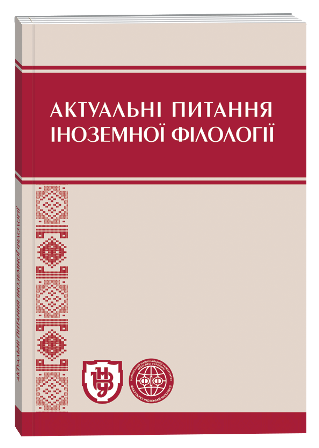NON-EQUIVALENT VOCABULARY: DIFFICULTIES IN TRANSLATION
Keywords:
non-equivalent vocabulary, reality, accidental gap, musical instruments, transliteration, tracingAbstract
The article deals with non-equivalent vocabulary – words that do not have any full or partial equivalents among lexical units of another language. The names of English and Ukrainian authentic musical instruments belong to this group of vocabulary. Such language units always express specific features of a certain national culture. Because of this, they represent important material for cross-cultural investigations. The article outlines main reasons for non-equivalency and defines such notions as ‘cultural and national concept’, ‘accidental gap’ (also known as a ‘lexical gap’, ‘lacuna’) and ‘reality’. The data array that names musical instruments was obtained with the help of the method of complete sample. Comparative analysis of the names of English and Ukrainian authentic musical instruments showed that they cause difficulties while translating them into other languages as there are no equivalents in the language of translation. The names of the Ukrainian authentic musical instruments are usually translated with the help of transliteration and transcription which is followed by a detailed description or explanation. Most British authentic musical instruments do not have equivalents in Ukrainian. They are rendered by a descriptive translation or tracing, seldom transliteration is used.
References
Влахов С. И. Непереводимое в переводе / С. И. Влахов, С. П. Флорин. – М. : Междунар. отношения, 1980. – 343 с.
Боран [Електронний ресурс] // Вікіпедія. – Режим доступу : https://uk.wikipedia.org/wiki/Боран
Голубовська І. О. Етнічні особливості мовних картин світу : монографія / І. О. Голубовська. – 2-е вид., випр. і доп. – К. : Логос, 2004. – 284 с.
Карасик В. И. Языковой круг: личность, концепты, дискурс / В. И. Карасик. – М. : Гнозис, 2004. – 390 с.
Культура Уельсу [Електронний ресурс] // База знань. – 2016. – Режим доступу : http://e-uman.org.ua/index.php?newsid=625447
Нерознак В. П. От концепта к слову : к проблеме филологического концептуализма / В. П. Нерознак // Вопросы филологии и методики преподавания иностранных языков : межвуз. сб. науч. тр. – Омск, 1998. – С. 80–85.
Попова З. Д. Когнитивная лингвистика / З. Д. Попова, И. А. Стернин. – М. : АСТ «Восток–Запад», 2007. – 314 с.
Попова З. Д. Язык и национальная картина мира / З. Д. Попова, И. А. Стернин. – Воронеж : Истоки, 2003. – 59 с.
Словник української мови : в 11 т. / за ред. І. К. Білодіда ; АН УРСР, Ін-т мовознавства. – К. : Наук. думка, 1970–1980.
Черкаський Л. М. Українські народні музичні інструменти [Електронний ресурс] / Л. М. Черкаський. – К. : Техніка, 2003. – 264 с. – Режим доступу : http://proridne.com/content/книги/Українські народні музичні інструменти Л. М. Черкаський/.
ABBYY Lingvo [Електронний ресурс]. – Режим доступу : http://www.lingvo.ua/uk
Bandura [Electronic resource] // Oxford Dictionaries. – Access mode : http://www.oxforddictionaries.com/definition/english/bandura
Bladder_fiddle [Electronic resource] // Wikipedia. – Access mode : https://en.wikipedia.org/wiki/Bladder_fiddle
Derkach [Electronic resource] // Wikipedia. – Access mode : https://en.wikipedia.org/wiki/Derkach
English timpani [Electronic resource] // Oxford Dictionaries. – Access mode : http://www.oxforddictionaries.com/definition/english/timpani
Floyara [Electronic resource] // Wikipedia. – Access mode : https://en.wikipedia.org/wiki/Floyara
Jew’s harp [Electronic resource] // Wikipedia. – Access mode : https://en.wikipedia.org/wiki/Jew's_harp
English timpani [Electronic resource] // Oxford Dictionaries. – Access mode : http://www.oxforddictionaries.com/definition/english/timpani
Torban [Electronic resource] // Wikipedia. – Access mode : https://en.wikipedia.org/wiki/Torban








